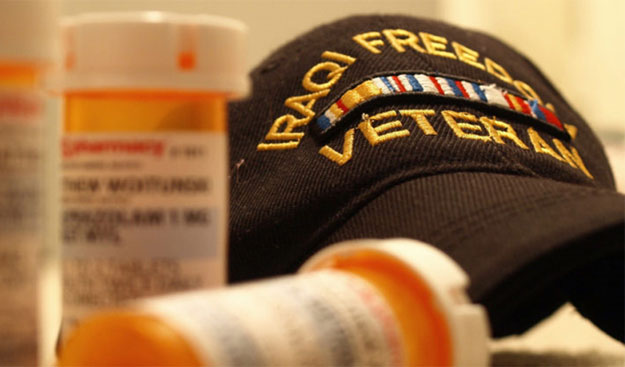First, Do No Harm: Avoiding Prescribing Pitfalls
Attention A T users. To access the menus on this page please perform the following steps.
1. Please switch auto forms mode to off.
2. Hit enter to expand a main menu option (Health, Benefits, etc).
3. To enter and activate the submenu links, hit the down arrow.
You will now be able to tab or arrow up or down through the submenu options to access/activate the submenu links.
Locator
Contact
Search
VA »
Health Care »
PTSD: National Center for PTSD
» Providers
»
First, Do No Harm: Avoiding Prescribing Pitfalls
PTSD: National Center for PTSD
First, Do No Harm: Avoiding Prescribing Pitfalls
Rural Provider PTSD Toolkit

Individual, trauma-focused psychotherapy is the most effective treatment for PTSD, but medications can be helpful in some patients. For the best outcome, it is important to keep focused on treating the core symptoms of PTSD.
When medication use shifts from treatment of PTSD to the quick amelioration of anxiety, anger, sleep disturbance and nightmares, treatment is less likely to be effective and may result in harm. Clinicians must manage a confusing overlap of symptoms when treating patients with PTSD, insomnia, and chronic pain - and increasingly face difficult decisions about how to manage medications, especially in patients with active or past substance use disorders. It is important to pause before initiating any medication to consider all the ramifications.
When medication use shifts from treatment of PTSD to the quick amelioration of anxiety, anger, sleep disturbance and nightmares, treatment is less likely to be effective and may result in harm. Clinicians must manage a confusing overlap of symptoms when treating patients with PTSD, insomnia, and chronic pain - and increasingly face difficult decisions about how to manage medications, especially in patients with active or past substance use disorders. It is important to pause before initiating any medication to consider all the ramifications.
Mindful Medication Prescribing

Ask yourself...
Is the drug indicated?
Is there a safer alternative (drug or non-drug)?
Is the benefit greater than the risk?
How will the drug help with goals/outcomes?
Could it make another condition worse?
Is there a more important drug or behavioral treatment?
How many psychoactive medications are prescribed?
Are there interactions/contradictions in the regimen?
Could a modifiable medication/substance, comorbidity, or social factor be causing the problem?























